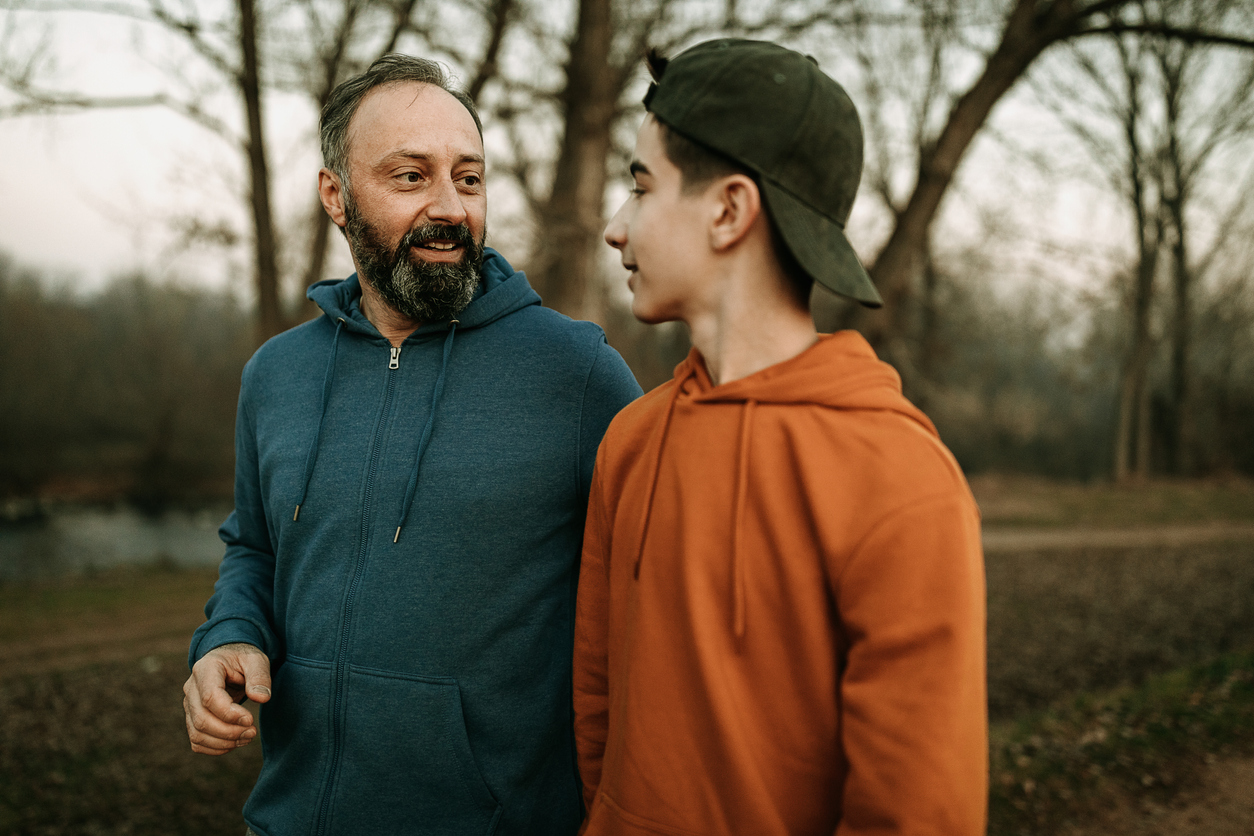
Anger is a normal, healthy emotion that everyone has. But sometimes anger can seem unkind, aggressive and even frightening. Here are some practical tips to spot, manage and get support with anger issues.
Anxiety is a normal human emotion. But having too much anxiety can cause issues. Here are some practical tips to spot, manage and get support with anxiety.
This advice applies to: England and Wales
Click on the link below to take you to the section you'd like to read:
Anxiety is a normal response to things that we perceive as a threat or a danger to us. In certain situations, anxiety can help us to be cautious and to avoid threats to our safety.
But having too much anxiety can cause issues, such as avoiding certain situations, increased negative thinking or even physical reactions, such as faster breathing, increased heartrate or aches and pains in the body.
By understanding your own anxiety better, you can help your child to understand and manage their emotions and responses.
Anxiety is a normal emotion that everyone has. It can range from mild to severe. When someone experiences a lot of anxiety, it can affect their behaviour as well as their mental health. Mind, the mental health charity, estimates that 1 in 6 children aged 5 to 16 have a mental health problem. By spotting the signs of anxiety, and using the techniques below, you can help your child to better manage their anxiety.
Anxiety is not always easy to spot in children. They will often show their anxiety in different ways, such as:
In older children anxiety can sometimes appear as:
Anxiety in children tends to be more present during the night, when change or transitions happen, during stressful periods such as exams and when they are separated from people they love, such as their carers. Anxiety is also higher in people with ADHD, autism and dyslexia.
Some of the behaviours related to anxiety can be challenging. If a child is anxious, they need a loving response along with tools and techniques to help them.
What can be viewed as ‘difficult’ behaviour is often due to underlying feelings of fear, insecurity and not feeling safe. So, talking to children about anxiety can help them understand what is going on in their bodies. When children can recognise the signs of anxiety, they can tell us when they are feeling anxious and can ask for help.
The below tips will help you to understand anxiety better. When you are practiced in these skills, you’ll be able to support the child in your care to manage their anxiety too.
A practitioner from Healthy Minds Lincolnshire talks you through finger breathing, a quick way for a young person to calm themselves when they are feeling particularly worried or anxious.
Watch the video tutorialA Healthy Minds Practitioner talks you through the square breathing technique, which can help young people reduce physical feelings of stress and worry.
Watch the video tutorialAnxiety is often felt as physical symptoms in the body, such as a sore tummy. A creative way to explore what anxiety feels like is to use an outline of a gingerbread person on a piece of paper or an actual gingerbread person that you can bake yourself or pick up from a bakery.
With your child, sit down and write, draw or decorate on the body the different sensations we feel when we are anxious.
Some ideas of what we might feel are:
Everyone is different. Working through this with your child can help them to understand their own signals better.
If your own, or a child’s, anxiety is leading to behaviour that is difficult to manage, including causing harm to self or others, it is important to seek professional support to help keep everyone safe.
If anyone is in immediate risk of harm, phone 999 for urgent help.
To talk to someone about how anxiety is affecting a child or family member, some organisations that can help provide support include:
YoungMinds is a national charity offering mental health support and advice for young people and parents. Their Parents Helpline is open Monday to Friday, 9:30am to 4pm. Call them on 0808 802 5544. Or you can chat to them online.
The Parent Talk website has a host of information on understanding your child’s emotions and behaviour, including anxiety.
Shout is a free, confidential, 24/7 text messaging service for anyone in the UK who needs support. If you are struggling to cope, talk to their trained Shout Volunteers. To start a conversation, text the word ‘Shout’ to 85258.
Reading about emotions can help children develop the language to talk about how they are feeling. There are lots of books on feelings and anxiety for children and young people.
We recommend The Huge Bag of Worries by Virginia Ironside, and Hey Warrior by Karen Young to read with children to help them understand anxiety better.
Find more useful books for children about anxiety from our partners at the BookTrust.
You may find it helpful to talk to someone like you. Our Someone like Me service will match you with another kinship carer, who is specially trained to offer emotional support. You can talk about any issues or difficulties you’re facing – and how you’re feeling. Our volunteers will listen, without judgement, offer understanding and provide emotional support.
Sign up for emails to keep up to date with the information that’s important to you, from support and advice for kinship carers, to our latest news, events and campaigns.